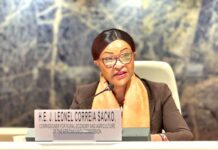
- Political promises change with each election, but national development must be anchored in continuity.
- Development goals should be negotiated and agreed upon across political lines.
- History won’t remember our manifestos. It will remember what we built — or failed to build — together.
Kenya’s greatest development crisis isn’t a lack of ambition — it’s a dangerous addiction to political short-termism. Every new government arrives with grand promises, fresh manifestos, and flashy slogans. But instead of building on existing plans, they abandon, rebrand, or repurpose past efforts. The result? A revolving door of policies, wasted public funds, and a nation stuck in developmental limbo.
Take our education system. From Free Primary Education (FPE) in 2003 to Free Day Secondary Education in 2008, and now the Competency-Based Curriculum (CBC), each wave has ushered in confusion instead of cohesion. Had free, quality education been secured as a long-term, non-negotiable national priority — with legal protection and sustained funding — our schools wouldn’t be underfunded, our teachers overwhelmed, and our students trapped in constant curriculum overhauls.
This cycle reveals a deeper dysfunction: the inability to separate party manifestos from national policy frameworks. Political promises change with each election, but national development must be anchored in continuity. Vision 2030 was supposed to be our long-term blueprint — but it has suffered from inconsistent commitment and piecemeal execution.
We don’t have to look far for better models.
- South Korea executed a series of Five-Year Plans that transcended party politics, ensuring long-term consistency.
- Rwanda’s Vision 2050 is legally protected and enforced through performance contracts (Imihigo), making deviation costly.
- Botswana has institutionalised National Development Plans that are updated regularly but always aligned to a long-term agenda.
Kenya, meanwhile, treats planning like a political accessory — discarded when power changes hands. Projects aren’t discontinued because they failed, but because they’re associated with a different regime. This isn’t progress; it’s perpetual improvisation.
To break the cycle, Kenya must make structural changes:
1. Enact a Long-Term Development Planning Act
Parliament must pass legislation that locks in a 20–30-year national vision. This framework must legally bind all administrations and ensure accountability.
2. Shield Key Sectors from Political Disruption
Education, healthcare, and infrastructure should be safeguarded from partisan interference. Their funding must span beyond electoral cycles.
3. Establish an Independent National Planning Commission
A technocratic body should oversee execution, monitor progress, and report directly to Parliament — not the presidency — to avoid politicisation.
4. Build Cross-Party Consensus on National Priorities
Development goals should be negotiated and agreed upon across political lines. National progress must not hinge on who’s in State House.
Kenya stands at a pivotal moment. We can continue recycling empty slogans every five years — or we can choose discipline, vision, and legacy. The youth can’t afford to wait. Teachers can’t afford to wait. Small businesses can’t afford to wait.
History won’t remember our manifestos. It will remember what we built — or failed to build — together.
YOU MAY ALSO LIKE: Why Kenyan Voters Must Reject Kenya’s Ballot of Division
Morvin Achila is a political economist and development policy researcher at Kenyatta University. Email: morvinachila@yahoo.com









































